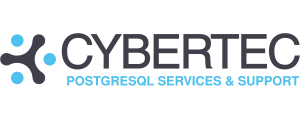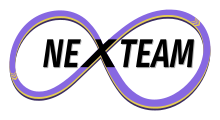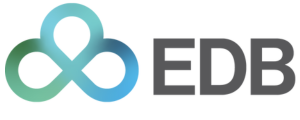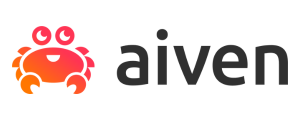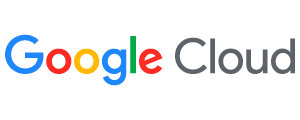Interview with Google Cloud
Find out more about our sponsor Google Cloud
Any views or opinions represented or expressed in this interview belong solely to the interviewee and do not necessarily represent those of the 2025 organization, PostgreSQL Europe, or the wider PostgreSQL community, unless explicitly stated.
Google Cloud accelerates transformation with Google’s leading, AI-powered Cloud technology.
What is your PostgreSQL centered product or service?
Cloud SQL for PostgreSQL offers a fully-managed PostgreSQL database service. It provides enterprise-grade features for data protection, availability, resilience, security, and governance.
AlloyDB is a high-performance PostgreSQL database designed for operational, analytical, and generative AI applications. It offers significant speed advantages over open-source PostgreSQL, including:
- More than 4x faster OLTP (Online Transaction Processing)
- Up to 100x analytical queries
- 4x faster vector search queries and up to 10x faster filtered vector search queries
What can attendees expect from your booth at PGDay UK 2025?
The AlloyDB demo features an AI assistant designed for a sports shop agent. This next-generation Agent AI application leverages ADK, MCP Toolbox, and AlloyDB for its capabilities. Demonstration of the AlloyDB AI query engine, which allows developers to use natural language expressions and constructs directly within SQL queries. Showcase AlloyDB AI Natural Language to query data securely and accurately. This includes demonstrating its ability to use supplied context and interactive intent clarification.
We will also showcase a demo on Advanced DR with Cloud SQL for PostgreSQL.
Why did you choose to sponsor PGDay UK 2025?
PostgreSQL stands as the leading open-source RDBMS today, widely embraced by developers for its extensive features and thriving community. Its growing prominence as a favored vector database, supporting vector embeddings and indexes, makes it ideal for building enterprise-grade gen AI applications. As a significant investor in AI and open source, Google has seamlessly integrated PostgreSQL into its database offerings.
With Google's robust security embedded across its products, you can confidently build enterprise-grade AI applications using AlloyDB and Cloud SQL, leveraging integrations with both first- and third-party AI models. Furthermore, our database products boast unparalleled data protection, availability, and resilience.
We aim to highlight the transformative capabilities within our PostgreSQL offerings that empower you to create impactful applications for your end users in the UK.
How do you see AI changing the database world over the next few years?
AI is the major technological advancement of our time, fundamentally shaping our future. The development of powerful AI applications necessitates robust database support, particularly real-time operational data. Developers building these applications favor OLTP databases that offer vector capabilities, seamless integration with cutting-edge AI/ML models, integration standards such as MCP and A2A, and compatibility with application orchestration frameworks. It is anticipated that all databases will eventually possess these crucial functionalities.
Which contribution to PostgreSQL from your company are you most?
Previously, pg_upgrade handled Large Objects by creating individual commands. The new approach exports the underlying table, significantly improving performance. This change is implemented within pg_dump –binary-upgrade.
Value of the fix: This patch dramatically speeds up PostgreSQL major version upgrades, particularly in worst-case scenarios involving numerous Large Objects. Previously, these upgrades could take days to restore Large Objects, but with this fix, the process is now orders of magnitude faster.
What is the most important feature in the latest PostgreSQL release?
B-Tree Skip Scan significantly enhances query performance by leveraging skip scans on multicolumn B-tree indexes. This feature is particularly advantageous for queries that omit conditions on prefix index columns. While Oracle has long offered Index Skip Scans, it's a welcome addition to PostgreSQL, making it an even better choice for enterprise workloads.
Support for asynchronous I/O will boost I/O throughput: This means customers who migrated from Oracle and utilized async I/O there will now experience comparable I/O performance.
Full DDL Support in Logical Replication.
Where is the database world heading, how will PostgreSQL evolve?
PostgreSQL is set to offer support for hybrid workloads, encompassing OLTP, analytics, and vector (gen AI) capabilities, as some PostgreSQL vendors already do. We anticipate open-source software (OSS) will incorporate a columnar engine/store to accelerate OLAP queries. Furthermore, OSS PostgreSQL will gain more AI features, including faster and less resource-intensive vector indexes through the continued evolution of the pgvector extension. Seamless integrations with third-party OSS AI/ML models will also be a key development. Significant improvements in the I/O subsystem are expected to cater to applications requiring very low latency. Ultimately, PostgreSQL is poised to become the primary choice for developers building impactful applications.

